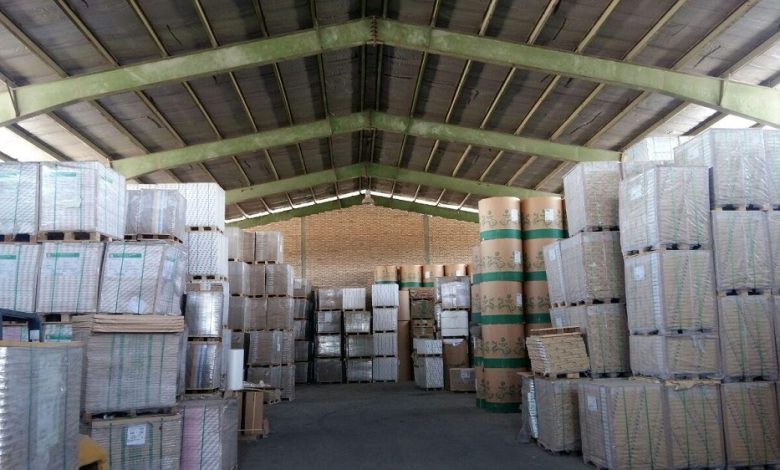mo234@2020How the IRGC’s Medicine Mafia Profits from Iran’s Drug Shortage

medicine_hoarding
Written by
Moussa Afshar
The shortage of medicine in Iran has reached a critical point. The state-run Taamol newspaper on Wednesday described this crisis as an “Alarming situation of medicine.” But who is to blame for this crisis that endangers the lives of millions of Iranians?
“Take the shortage of medicine seriously, as medications are strategic products. The absence of medicine jeopardizes the lives of millions, mainly patients,” Taamol wrote.
Despite the fact that medicine is not included in lists of sanctions against the regime, regime officials and apologists blame the crisis on “global arrogance” and its “ruthless sanctions.”
Yet, for Iranians, it is crystal clear that the ruling theocracy and its mafia are the real perpetrators of the lack of medicine in Iran.
“The mafia of medicine, which profits from imports, is very powerful. In a project to import poisonous serums, they managed to profit while the country’s serum manufacturers had to shut down for six months,” the state-run Ham Mihan website wrote on April 25.
Source of Crisis of Medicine, Medical Facilities, and Equipment in Iran: Regime’s Conducts or Sanctions?#Covid_19 #coronavirus #Iran https://t.co/FJfmZ2FR99 pic.twitter.com/t8lNR6ktG7
— NCRI-FAC (@iran_policy) April 5, 2020
This mafia also profits immensely by playing with medicine prices. “Those diagnosed with cancers are not just grappling with the worst kind of disease. They have to cope with the unbearable ever-growing prices of medicine,” the state-run Mojnews website wrote on April 24.
According to the state-run Mardom Salari Daily on April 24, “A package of simple painkillers that was 10,000 rials or less now costs more than 200 or 300 thousand rials.”
“We are seeing a surge in patients who have been released from medical facilities and can’t afford their medical expenses despite having health insurance, or are concealing their inability to pay due to various reasons,” the state-run Etemad newspaper wrote on April 19.
“Occasionally, roommates, other patients, or even ward medical staff gather their money to offer assistance, while the hospital itself may provide discounts. However, this state of affairs is unsustainable and cannot persist indefinitely,” the paper adds.
Due to the regime’s corruption, mismanagement, and ineptitude, Iran suffers from its worst economic crunch in over a century, with inflation hovering above 50% and the production rate dwindling to under 3%, while the unemployment rate and prices are soaring.
Private insurance companies continue removing essential medicines from coverage plans. These insurance companies are affiliated with the Revolutionary Guards (IRGC) or Institutions under Supreme Leader Ali Khamenei’s control.
Millions of Iranians, mainly workers, and pensioners with meager earnings, are supposedly covered by the country’s Social Security Organization (Shasta), which is bankrupt. They have been holding protests in this regard for the past two years.
All the while, the Mafia controlling Iran’s medicine market continues their thriving business.
Like various sectors in this affluent nation, Iran’s pharmaceutical industry has been seized by the IRGC and foundations affiliated with Khamenei. Among these foundations is the Execution of Imam Khomeini’s Order (EIKO), which exercises a stranglehold on a significant portion of Iran’s pharmaceutical products via its Barekat company.
With a significant 60.6% stake, the Barkat Pharmaceuticals Holding Company possesses the majority of shares in the Alborz Investment Group, the nation’s second most extensive pharmaceutical conglomerate. The companies incorporated within this group encompass:
Alborz Pharmaceuticals Company
Sobhan Pharmaceuticals Company (manufactures pills)
Iran Pharmaceuticals Company
Tolid Pharmaceuticals Company
Sobhan Oncology Company – Manufactures Paclitaxel, licensed by the Swiss pharmaceutical company Stragen.
KBC (importer)
Alborz Distributors
Alborz Ascend Investment Company
Alborz Balak Company
Farabi Pharmaceutical Manufacturer (17 percent)
Razak Pharmaceutical Manufacturer (12 percent)
Ati Farmed Company (51 percent)
BioSun Company (20 percent)
Alborz-Zagros Company
Barkat Pharmaceuticals Holding Company owns 60.6 percent of the Alborz Investment Group, the second-largest pharmaceutical holding company in the country. (Read More on our website) https://t.co/GaDqOzvHW8
— NCRI-FAC (@iran_policy) July 20, 2022
Barkat Holding was tasked with producing the failed Covid-19 vaccine during the pandemic in Iran. While Iran was greatly afflicted by the pandemic, enduring an overwhelming toll of over half-million deaths, Khamenei prohibited the import of globally approved vaccines from the U.S. and U.K. This criminal order not only increased casualties and perpetuated societal control through the virus but also enabled Barkat Holding to monopolize the market.
“The Food and Drug Administration is under heavy pressure to approve domestically produced vaccines and anti-coronavirus medicines. Because obtaining approval from the Ministry of Health means a huge profit for the drug owner,” wrote the state-run Jahan-e Sanat on December 14, 2022, in this regard.
Like other crises, the shortage of medicine is also due to the regime’s devastating policies. This is why Iranians have continued their uprising in the last seven months while chanting, “Poverty, corruption, high prices, onward to regime’s downfall.”

